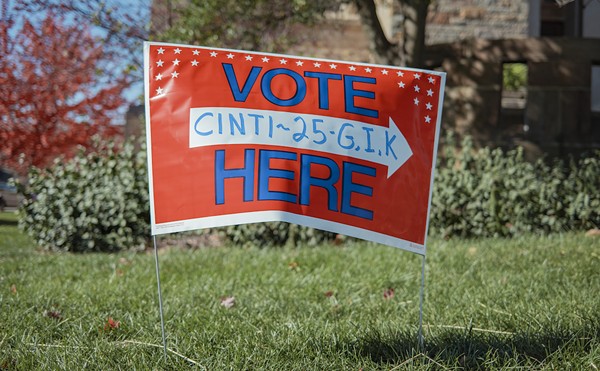An old saying goes that those who ignore history are doomed to repeat it. A modern-day saying in Cincinnati goes that if you ignore a problem there is no problem.
There's a fine difference between the two phrases but a significant distinction, particularly when it comes to the crisis du jour here — the festival seating plan announced for Bruce Springsteen's Nov. 12 concert at US Bank Arena.
Arena management, backed by the city's police and fire departments, was granted a waiver from Cincinnati's ban on festival seating at concerts. The ban, of course, came as a result of the 1979 Who tragedy in which 11 people died at the same facility.
The Springsteen show is the perfect opportunity for city leaders and local concert promoters to take a tentative step back into festival seating — only 11 percent of the tickets being sold are general admission (floor seats only), and Springsteen draws an older (i.e., less frenzied) crowd. Thus conditions are very favorable for an orderly night on Nov. 12.
Yet the local mainstream media has seized on the emotional wallop of the seating plan story, pitting money-hungry promoters and musicians against the memory of 11 dead Cincinnati youngsters. Certainly no one wants to disrespect the families of those who died at the Who show by wiping away that tragic incident, but let's get real.
Sticking our collective heads in the sand won't bring those Who fans back to us.
Pretending that the ban on festival seating doesn't hurt Cincinnati — by keeping more and more quality concerts out of town — is simply ignorant.
The Who tragedy changed the concert business forever. Remember that almost the entire arena at that show — 15,000 seats — was general admission. Security sucked. People waited outside for hours in disorganized lines. Only four doors were opened for the whole crowd. Panic ensued.
That doesn't happen anymore. Every city in the United States learned from the Who tragedy. Every police force studied the event and changed its crowd policies. Every large venue changed how it runs concerts. Except Cincinnati.
Cincinnati, in what was the right response at the time, banned festival seating. But 23 years later, the ban has outlived its usefulness.
There's really only one silver lining to a tragedy — the hope that people learn something from it so it never happens again. Purposefully refusing to learn lessons from the Who deaths is more disrespectful of those who died than moving on with efforts to improve Cincinnati.
Ah, but some people would say the lesson learned from 1979 is that Rock concerts are inherently dangerous and concert-goers will battle and trample each other at the drop of a hat. Concerts, therefore, must be tightly regulated or, if need be, avoided altogether.
Clearly people of that persuasion have no soul. They live in a sad world in which music has no meaning, in which concerts aren't the highlight of your life, in which $50 or $75 forked out on a big show isn't money well-spent.
In other words, they forget what it means to be young. And not just young in years, but young at heart.
It's a big deal to a lot of us that U2, Pearl Jam, Smashing Pumpkins, Green Day and other acts skipped Cincinnati because city arenas couldn't offer festival seating. It's hard for music fans to explain why live music is important to them — it just is.
The Springsteen show will be fine, mostly because local promoters and security personnel — like their counterparts everywhere else — learned from the Who tragedy. And if there's a problem, they'll fix it before the next show. That's what intelligent humans do.





